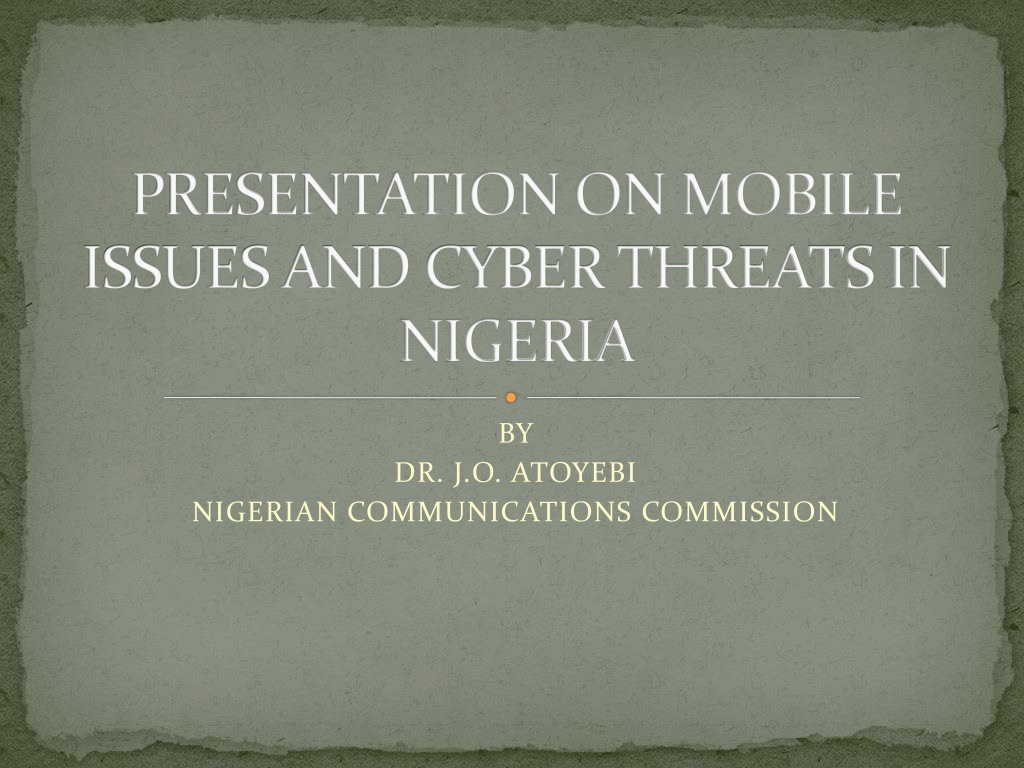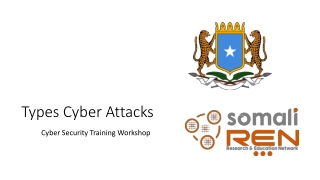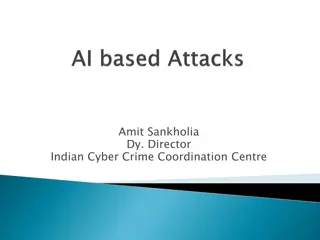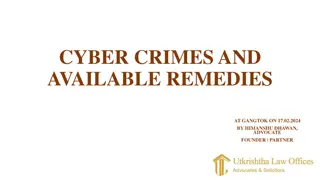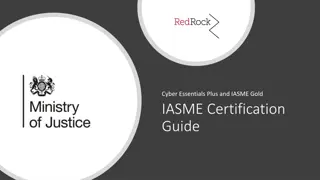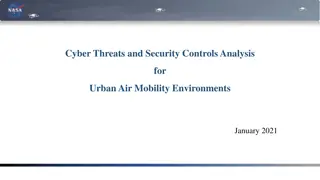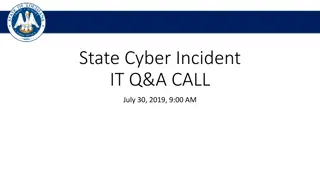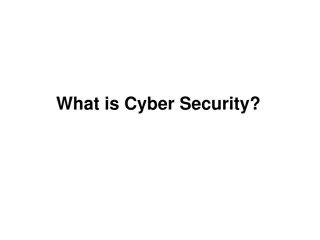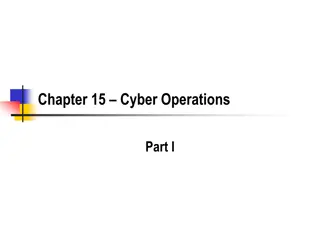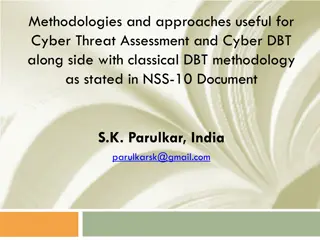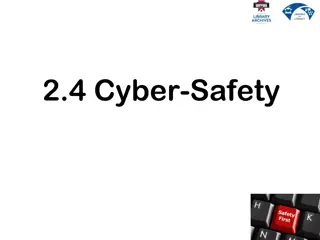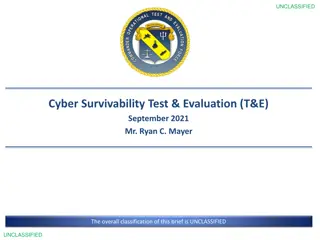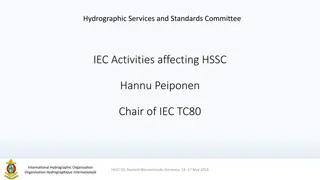Mobile Issues and Cyber Threats in Nigeria - Presentation by Dr. J.O. Atoyebi, NCC
Evolution of GSM in Nigeria, the impact of mobile phone deregulation, and the rise of cyber threats highlighted in a presentation by Dr. J.O. Atoyebi of the Nigerian Communications Commission. The report reveals Nigeria's position in global internet security threats and the challenges faced by the country in combating cyber threats.
Download Presentation

Please find below an Image/Link to download the presentation.
The content on the website is provided AS IS for your information and personal use only. It may not be sold, licensed, or shared on other websites without obtaining consent from the author. Download presentation by click this link. If you encounter any issues during the download, it is possible that the publisher has removed the file from their server.
E N D
Presentation Transcript
PRESENTATION ON MOBILE ISSUES AND CYBER THREATS IN NIGERIA BY DR. J.O. ATOYEBI NIGERIAN COMMUNICATIONS COMMISSION
Evolution of GSM In Nigeria In 2011, the deregulation of the mobile phone market led to the introduction of Global System for Mobile communication (GSM) network providers operating on the 900/1800 MHz spectrum, MTN Nigeria, Airtel, Globacom and Etisalat. Use of cell-phones have soared, and have mostly replaced the unreliable services of the Nigerian Telecommunications Limited. The current estimate lies at about 88 million mobile phones as at October 2011, with most people having more than one cellphone.
Evolution of GSM Contd Nigeria's Communications Commission (NCC), introduced the Unified Licensing regime with the expiration of the exclusivity period of the main GSM network providers. It is hoped that the Service Providers with the Unified Licence would be able to provide fixed and mobile telephony, Internet access as well as any other communications service they choose to offer. NCC, as of, March 2011, also started registering SIM cards. The exercise has ended and the Mobile Number Portability has successfullycommenced. Telecom Regulator, The Nigerian
Cyber Threat The latest Symantec Internet Security Threat Report (Vol.17) showed that Nigeria has moved six positions up the ladder to occupy the 59THposition globally among countries with greatest Internet Security and information threat. The fast rising Nigeria economic indexes, increased broadband availability, growing usage of mobile and connected devices in responsible forthe CyberThreat. the country are largely
This simply means that Nigeria is increasingly being exposed to cyber developed nations have the larger risk of cyber threats and they also have a quick recovery plan in place for it. It becomes a greater concern for Nigeria because there are no plans on ground to combat such threats. For Nigeria, this alarming trend calls for a critical approach considering the fact that Nigeria is a country busy adopting and using technologies without a balanced approach where risks associated with such are holistically tackled and minimized. threats. Most
As at March, 2013, the number of active mobile lines has increased to 113million as against the 400,000 active lines in 2001 when GSM started. However, the rapid development of mobile communication and the licensing of 3g Spectrum has greatly increase ability to perform lots of other services that will drastically change the business pattern of the telecom industry and bringing a set of new challenges.
Conclusion The emergence of Mobile telephones gave rise to socio economic development and there is no development without its challenges The issue of cyber insecurity which excludes Nigerians from transacting genuine business on some of the international payment systems and online retailing activities has to be addressed
